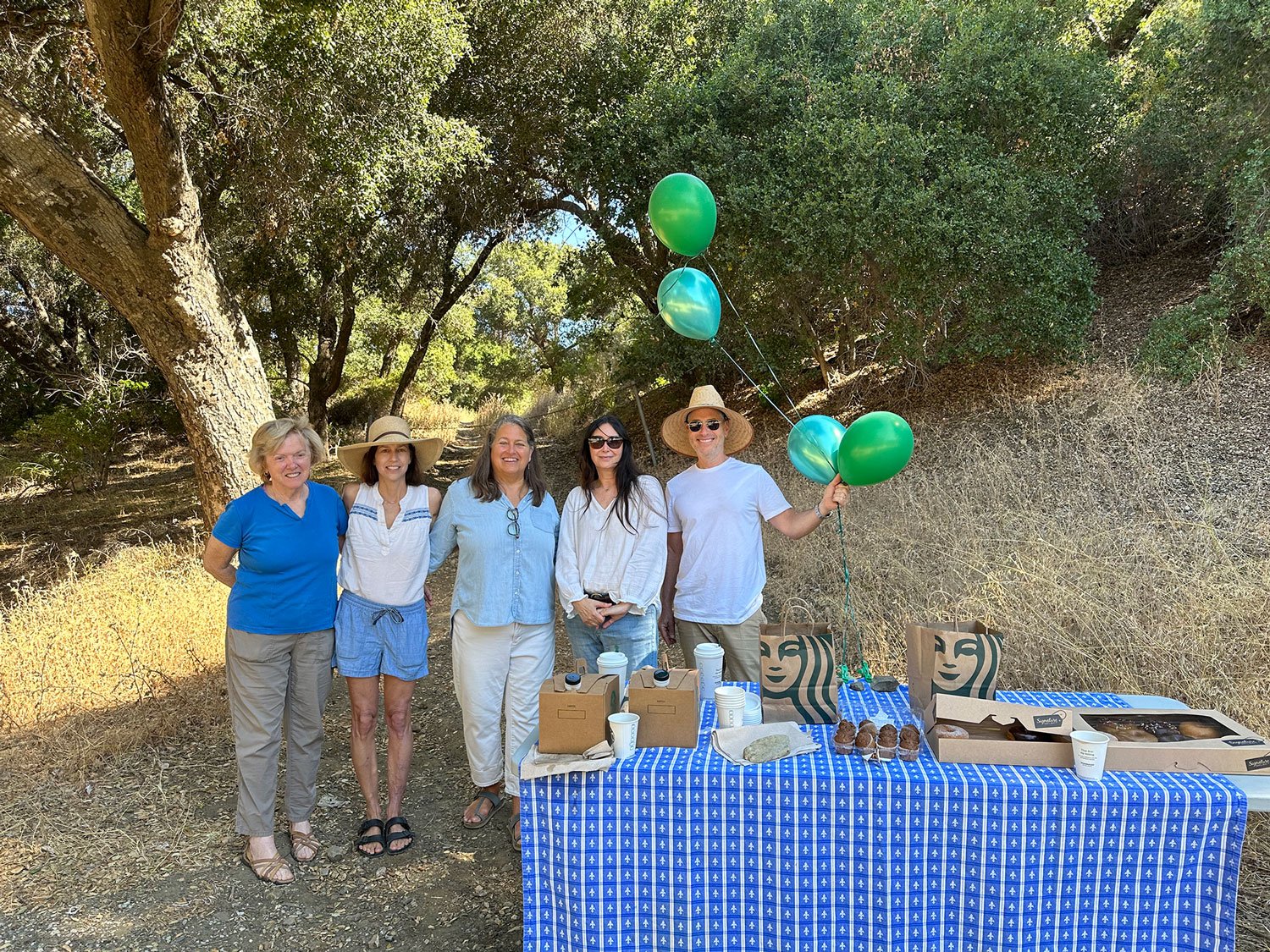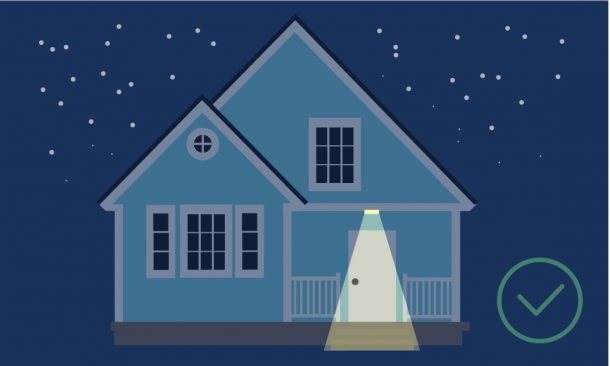🌻Summer Garden Care🌻
As the days get warmer, it can become more difficult to care for your garden. It can be even more confusing to understand how to care for native plants in high heat. Below is a list of resources to help you keep your cool and enjoy the process.
Home Wildfire Hardening Assessments - Learn How to Protect Your Home
Watch a video on how your home could survive a wildfire from the National Fire Protection Association (NFPA). In the video, Dr. Jack Cohen, Fire Science Researcher with the USDA Forest Service, explains current research about how homes ignite during wildfires, and the actions that homeowners can take to help their home survive the impacts of flames and embers.
☀️Saturday Morning Celebration of New Left Turn Signal on Las Virgenes & Piuma
The MNVCA thanked Mon Nido resident Michelle Benedetti for her determined and successful efforts in getting a protected left turn signal added to the traffic light at Las Virgenes and Piuma.
🐍What to Do If You See a Rattlesnake
It’s rattlesnake season. Here’s what to do if you come across one while hiking.
🌻Thank You Monte Nido!🌻
What a fun and charmingly old-fashioned Fourth of July we have the good fortune to celebrate here in Monte Nido! 2023’s “Flower Power” Parade and the Picnic at “Fleemans’ Meadow” may be over for this year, but the events will be in our (especially the children’s) memories forever. It is the quintessence of Monte Nido.
🌼🌸🌻 JULY 4th "SUPER BLOOM" Parade & Picnic Info Guide 🌼🌸🌻
The July 4th Parade & Picnic is almost here! Here's everything you need to know to get ready for the day!
Calling All Generous Neighbors: Contribute and Win Fun Prizes in Our July 4th Raffle!
We're reaching out to our community to help us gather some fantastic prizes for the raffle. It's the perfect opportunity for local businesses, talented individuals, and generous folks like you to showcase your products or services.
Calling All Three-Generation Families! Be Our July 4th Parade Grand Marshals!
Are you a member of a three-generation Monte Nido family? Have you witnessed living in this neighborhood from one generation to another? If so, we want to honor YOU as the Grand Marshals for the upcoming 2023 4th of July Parade!
MONTE NIDO’S 4TH OF JULY PARADE AND PICNIC!
We look forward to gathering and sharing good times with new neighbors, who are getting their first taste of Monte Nido, and past residents, who come back to enjoy what makes this place so special.
Announcing the July 4th 2023 Parade Theme: FLOWER POWER!🌻🌼🌸🌺
The Super Bloom has all of us inspired to pay tribute to the beautiful blooms around us, so let's extend the wonderful colors into the deep summer months.
Volunteers Needed for July 4th Parade & Picnic Celebration!
Join us for an unforgettable July 4th parade and picnic celebration in Monte Nido! With vibrant floats, games and refreshments, it's an event not to be missed.
Thanks to All Who Attended the King Gillette Ranch Tour!
Thanks to all who attended the private tour of the National Park Service Visitors Center followed by a guided walk around the grounds of the King Gillette Ranch!
Watch the Lyrid Meteor Shower!
Tonight is the final night of Dark Sky Week and what better way to celebrate than with nature's own light show!
The Consequences of Light Pollution on Wildlife
As humans, we tend to think of the night as a time of rest and recuperation. But for many animals, it's a time of activity and exploration. Whether they're hunting for food, socializing with other animals, or navigating their way through the darkness, wildlife relies on the night to survive. And for many of these creatures, dark skies are an essential component of their habitat.
Finding Inner Peace: A Star Gazing Meditation Guide
Meditation has long been known to offer a variety of benefits for the mind and body, and for centuries, people have turned to meditation to find inner peace and relaxation. While meditation can be done anywhere, there is something particularly special about meditating under dark skies.
Staying Safe in a Dark Sky Community
Dark Sky communities are generally safe communities, but criminal activity can still be a concern for some individuals based on their experiences. When it's dark, our fear response is triggered as our brains try to fill in the gaps and imagine potential dangers lurking in the shadows. This is a normal part of our survival instinct.
The Alarming Effects of Light Pollution on Your Plants and Garden
Light pollution, which currently affects a quarter of the planet and is increasing by approximately 6% each year, has led to an increase in the number of disrupted circadian rhythms for living beings, including plants.
How Light Pollution Wrecks Your Health
As humans, we rely on natural light cues, such as the daily cycle of light and dark, to regulate our biological processes. This is known as the circadian rhythm, which influences behaviors such as sleep patterns. Artificial light at night disrupts these natural rhythms and can have detrimental effects on our behavior and physiology.
Why are Dark Sky Communities Like Monte Nido Important?
Dark sky communities, also known as dark sky places, are designated areas where efforts are made to minimize artificial light pollution and protect the natural darkness of the night sky.
The Darkness Manifesto: On Light Pollution, Night Ecology, and the Ancient Rhythms that Sustain Life
Welcome to the first night of Dark Sky Week: an invitation to turn down your exterior lights and observe the night sky. Tonight we're reading The Darkness Manifesto by Johan Eklöf.




















